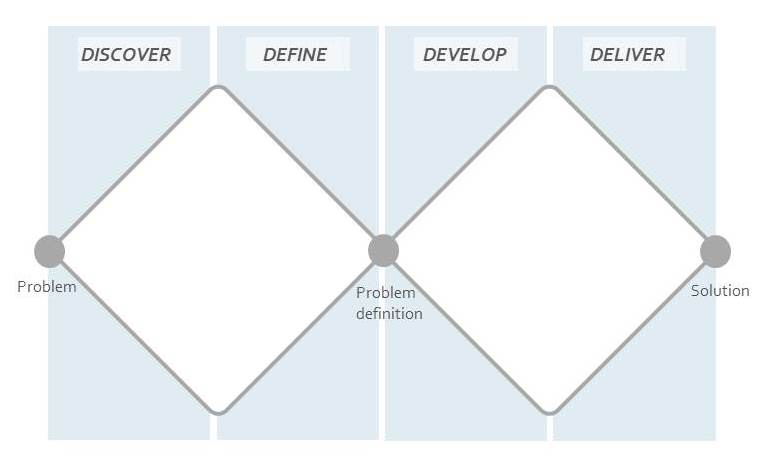Double Diamond is a process model created by Design Council, a British organization, in 2005. The model provides a graphic representation of a design process. Its development was based on case studies gathered from the design departments at 11 global firms. Four generic stages are identified and described in this process model.
The model presents four main stages across two adjacent diamonds. As illustrated in the Double Diamond model’s first diamond, the problematisation and understanding of a problem are equally important.

